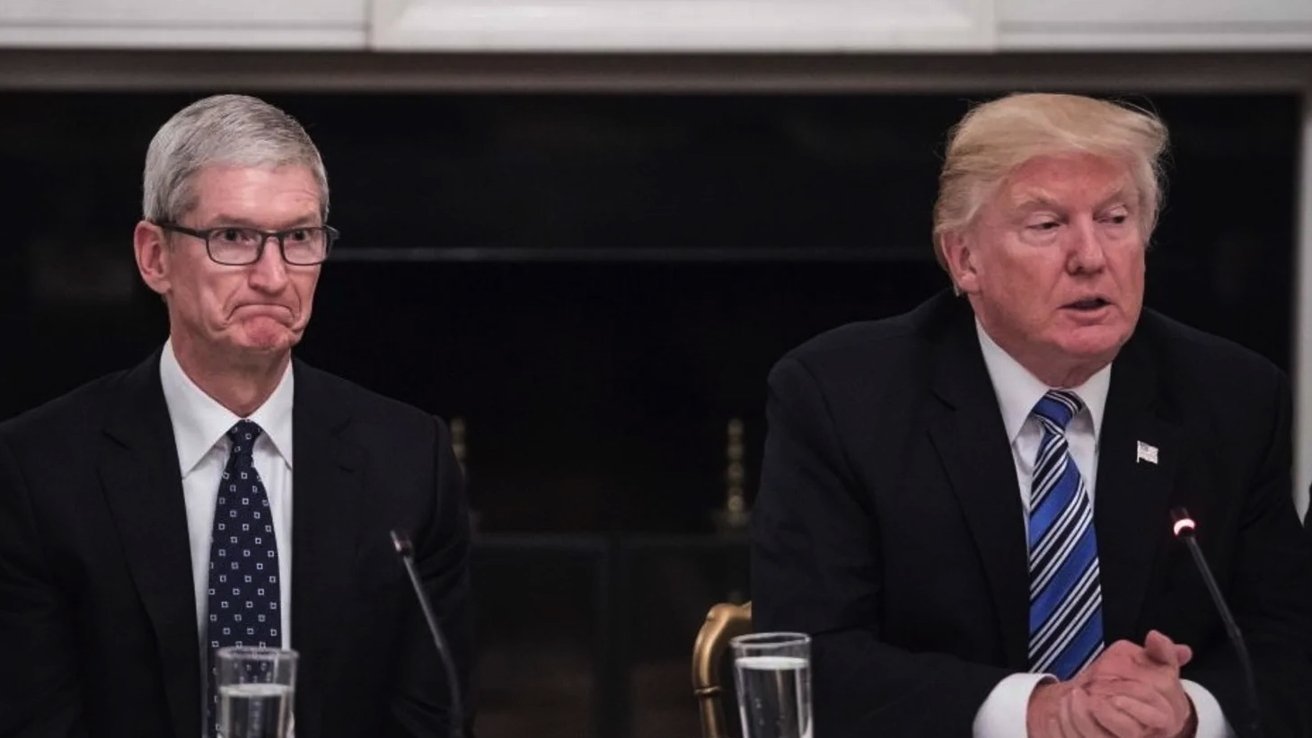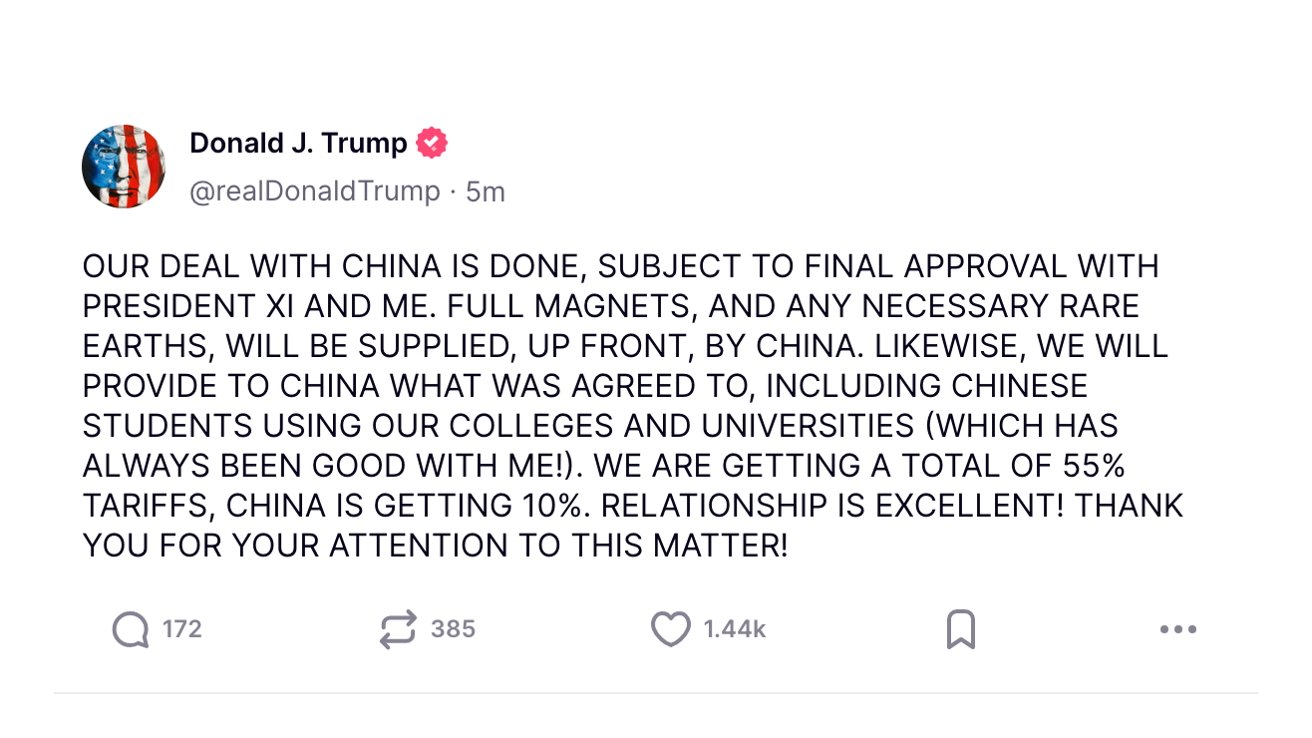Tim Cook and Donald Trump in a meeting at the White House in 2018

In an ambiguous post today, President Donald Trump noted that he’s close to a deal with China, that’s still worse for Apple and the US economy than what was in place before his April tariff program launch.
On Wednesday, Trump took to Truth Social to announce that the U.S. and China were in the process of completing tariff negotiations. According to Trump, the US will receive 55% tariffs, while China will receive 10%, pending approval from both parties.
As part of the deal, China will supply magnets and rare earth materials. In exchange, the U.S. will continue to allow Chinese students to attend American colleges.

Trump announces “China Deal” on Truth Social
The situation remains chaotic, but on the surface appears to be a notably worse deal for the US public than what was in place. Prior to the tariff kickoff in April, US companies paid about 15% to import goods from China, with Apple paying notably less than that. Given that importing companies pay the tariffs, not the exporting country, that’s gone up to 50% that will need to be paid, and ultimately soaked up by the US public, with no specific deal for Apple given Trump’s previous remarks about smartphone imports.
Also, previously, China companies paid about 30% in tariffs importing goods into the US. They will have to pay 10% under the new deal if the President’s post is fully accurate.
In April, China halted exports of rare earth minerals and magnets, placing the materials on an export control list. The move effectively stopped the export of the materials out of the country and into others, where they would be used to produce parts and components for various products.
The materials themselves are crucial for major industries — especially in the manufacturing of devices like consumer electronics. The move was seen as punitive, designed to bite back at the Trump Administration for the escalating tariff war.
China produces around 90% of rare earth minerals used globally. This gives it a massive amount of control over the materials, and the ability to use it as a cudgel to attack other countries with, such as the U.S.
The tariff war has had a rippling effect on many companies, including Apple. Recently, Apple’s rollout of Apple Intelligence in China hit delays as a direct result of regulatory issues raised in response to President Trump’s tariffs.
Apple is expecting a $900 million hit to revenue in the current quarter as a result of the tariff situation.
It’s not clear when any deal will be signed.

